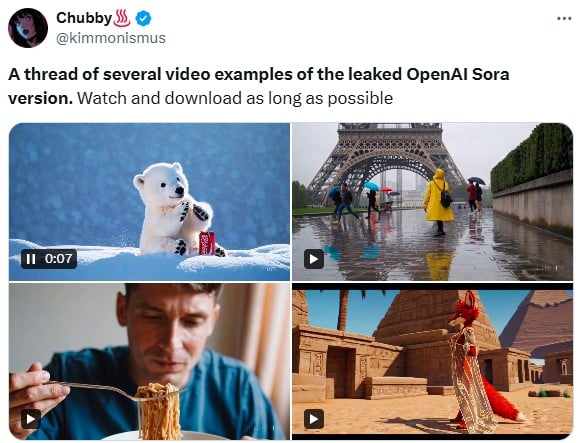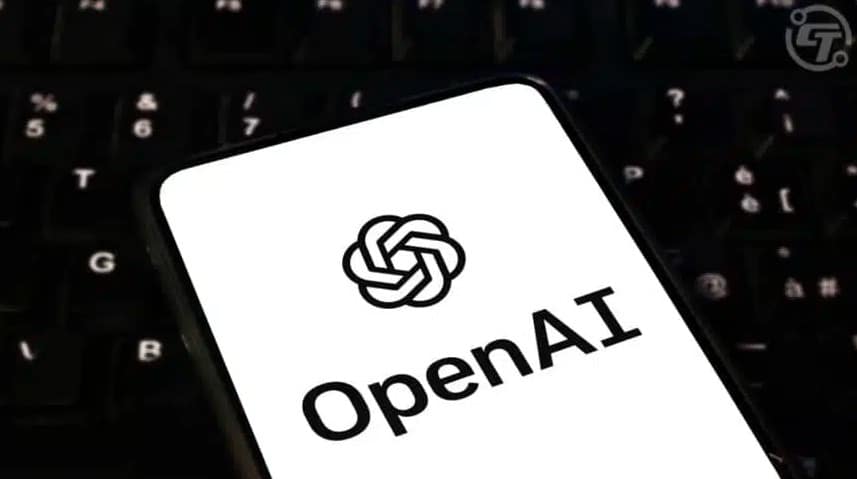A storm has hit the AI world after OpenAI’s powerful new model, Sora, was leaked online. Sora, a text-to-video generator, can create impressive short videos from text prompts.
The leak, shared on Hugging Face, was allegedly carried out by testers using the username “PR-Puppets.” The model, capable of generating 10-second clips in 1080p resolution, was online for just three hours before being taken down. Before its removal, users shared generated video clips on X (formerly Twitter).

However, while the model’s technical capabilities are groundbreaking, it faces challenges in creating complex visuals and ensuring content safety. The leak has raised alarms about how OpenAI treated its testers, many of whom were unpaid creative professionals.
These artists and filmmakers contributed to Sora’s development but claim they were not fairly compensated or recognized. The leak appears to be a protest against OpenAI’s treatment of these workers, with the group calling attention to the exploitation of artistic labor in AI development.
The incident has also revived concerns about intellectual property. OpenAI has been criticized for using copyrighted materials to train its models without proper transparency. Although the company claims to have used licensed datasets for Sora, there’s still skepticism about how these datasets were sourced and used.
For the AI and creative industries, this leak serves as a wake-up call. It highlights the need for greater transparency, fair compensation, and respect for intellectual property. As AI continues to evolve, balancing technological progress with ethical responsibility will be essential to ensure trust between developers and creatives.
This controversy over Sora is a reminder of the broader challenges AI companies face as they navigate innovation and ethics.







